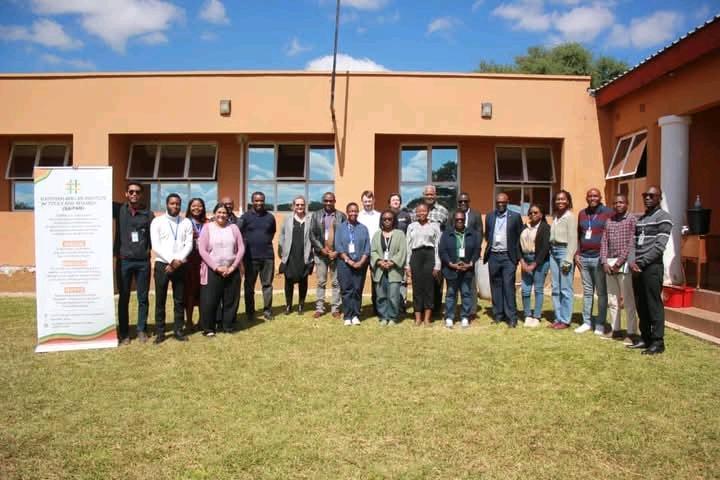Africa-Press – Zambia. A Senior Research Fellow at the Southern African Institute for Policy and Research (SAIPAR) and a Senior Law Lecturer at the University of Zambia (UNZA), Dr. O’Brien Kaaba has clarified that the recently assented cybersecurity laws in Zambia are not yet in force, contrary to claims circulating on social media.
Dr. Kaaba said that while the laws received Presidential Assent in April 2025, they require a formal Commencement Order before taking effect.
He explained that the Cybersecurity Act requires a Commencement Order issued by the President, while another cybersecurity-related law requires a commencement order from the relevant Minister.
The Legal Expert said as of now, no Order has been signed, meaning the laws remain inactive.
He further noted that recent arrests related to cyber offenses in Zambia have been based on the 2021 Act, which remains in effect until the laws officially come into effect
The Legal Expert said this in a Policy Brief dubbed The Cyber Crimes and the Cyber Security Acts: The Good and the Bad presented during a Roundtable Discussion at the Southern African Institute for Policy and Research (SAIPAR) Muna Ndulo Campus in Lusaka.
President Hakainde Hichilema assented to the Cyber Security Act No. 3 of 2025 and the Cyber Crimes Act No. 4 of 2025 on 8th April 2025, with the laws set to come into force upon the issuance of the commencement orders.
The new legislation is intended to repeal and replace the Cyber Security and Cyber Crimes Act No. 2 of 2021.
Dr Kaaba highlighted the justification for cyber regulation, citing the exponential growth of computer technology and the increased penetration of the internet, which have drastically transformed human interactions and opportunities.
He noted that many government services, commerce, and routine communication now rely heavily on cyberspace, but this digital landscape also presents significant risks, with criminals exploiting online platforms to advance their own goals.
Dr Kaaba pointed out that while social media has allowed people to express themselves in ways conventional outlets could not, it has also become a space where offline harm is replicated.
He stressed that regulation is necessary to mitigate such risks while ensuring the enjoyment of human rights online, necessitating the criminalisation of certain harmful cyber activities.
He referenced Article 25(1) of the African Union Convention on Cyber Security and Personal Data Protection 2014, which calls for states to adopt legislative measures that criminalise acts affecting the confidentiality, integrity, and availability of digital systems and data.
He emphasised the importance of balancing state intervention with the protection of human rights, as outlined in Article 25(3) of the Convention.
The Cyber Crimes Act criminalises various forms of misconduct in cyberspace, including unauthorised access to computer systems, data interference, cyber fraud, child pornography, online human trafficking, and cyber terrorism.
Dr Kaaba noted that these provisions align with international standards, such as the Council of Europe’s Convention on Cybercrime (Budapest 2001) and the African Union Convention on Cyber Security and Personal Data Protection 2014, which similarly prohibit a range of cyber offences.
Addressing concerns about surveillance, he highlighted provisions in the Cyber Security Act that require electronic communication service providers to equip their systems with monitoring capabilities, facilitate real-time interception of communication, and store call-related data.
While recognising surveillance as a necessary tool for national security and crime prevention, Dr Kaaba cautioned that it must be proportionate and precisely targeted to avoid infringing on human rights.
He cited a 2023 resolution by the African Commission on Human and Peoples’ Rights, which encourages the use of privacy-enhancing technologies and discourages measures that weaken encryption or promote mass surveillance unless such actions are justified under international human rights law.
Dr Kaaba reiterated the importance of finding the right balance between effective cyber regulation and safeguarding individual freedoms, urging policymakers to ensure that security measures do not override citizens’ fundamental rights.
For More News And Analysis About Zambia Follow Africa-Press







